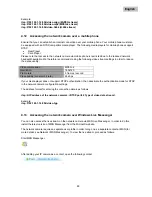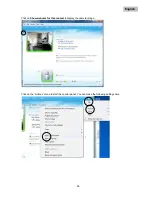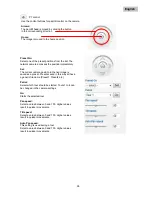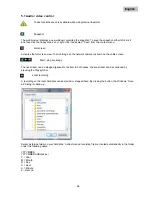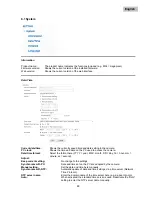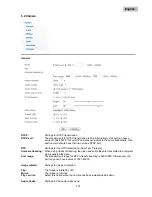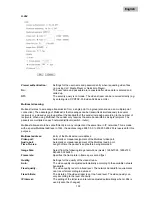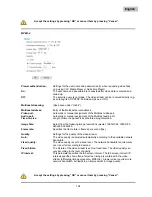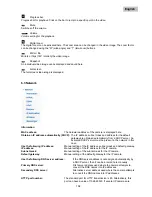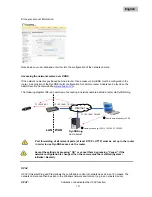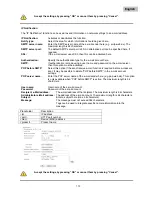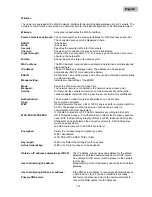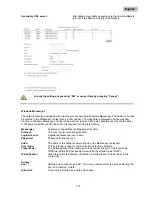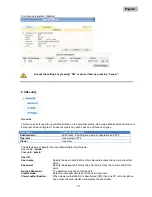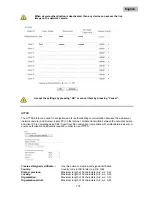
103
English
H.264
Viewer authentication:
Settings for the user name and password entry when requesting video files
(e.g. using VLC Media Player or Quicktime Player).
On:
The user name and password are requested after video data is entered and
called up.
Off:
The security query is not made. The video stream can be received directly (e.g.
by entering rtsp://IP:RTSP-Port/video.h264 as a URL).
Multicast streaming:
Multicast relates to a message transmission from a single point to a group (also known as a multiple-point
connection). The advantage of Multicast is that messages can be transmitted simultaneously to several
recipients or a closed user group without the bandwidth of the sender increasing according to the number of
recipients. When using Multicast, the sender only requires the same bandwidth as a single recipient. The
packets are multiplied on each network distributor (switch, router).
Multicast allows data to be sent efficiently to many recipients at the same time in IP networks. This is made
with a special Multicast address. In IPv4, the address range 224.0.0.0 to 239.255.255.255 is reserved for this
purpose.
Multicast address:
Entry of the Multicast server address.
Video port:
Automatic or manual assignment of the Multicast video port.
Audio port:
Automatic or manual assignment of the Multicast audio port.
Time-To-Live:
Length of time the packet is kept before being discarded.
Image Size:
Select from the following image resolutions (pixels): 1280x1024, 1280x720,
640x480, 320x240.
Frame rate:
Specifies the frame rate in frames per second (fps).
Quality:
Settings for the quality of the video stream.
Auto:
The video quality is adjusted automatically according to the available network
bandwidth.
Fixed quality:
The video quality is set to a fixed level. The network bandwidth requirements
can rise or fall according to demand.
Fixed bitrate:
The bit rate of the video stream is set to a fixed level. The video quality can
vary according to the level of activity.
IP interval:
The setting of the full-screen interval is adjusted automatically when H.264 is
used (cannot be changed).

